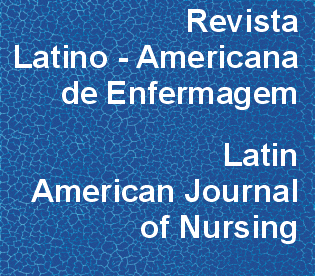Coping mechanisms used by non-burned out and burned out workers in the family health strategy
DOI:
https://doi.org/10.1590/S0104-11692009000500002Keywords:
nursing, stress, workers' health, family health programAbstract
This study aimed to investigate stress coping mechanisms used by workers of 16 Family Health Strategy (FHS) teams in Santa Maria, RS, Brazil. Six workers with scores compatible with the Burnout Syndrome, identified through the Maslach Burnout Inventory, and six workers without the syndrome were interviewed in January and February 2007. In the reports' content analysis, we identified that burned out workers predominantly used individual mechanisms to cope with occupational problems, while non-burned out workers sought collective mechanisms. These findings indicate the importance of interpersonal relationships among FHS team members to cope with occupational stress and the need to develop collective strategies to prevent stress and maintain workers' health.Downloads
Download data is not yet available.
Downloads
Published
2009-10-01
Issue
Section
Original Articles
License
RLAE’s authorship concept is based on the substantial contribution by each of the individuals listed as authors, mainly in terms of conceiving and planning the research project, collecting or analyzing and interpreting data, writing and critical review. Indication of authors’ names under the article title is limited to six. If more, authors are listed on the online submission form under Acknowledgements. The possibility of including more than six authors will only be examined on multicenter studies, considering the explanations presented by the authors.Including names of authors whose contribution does not fit into the above criteria cannot be justified. Those names can be included in the Acknowledgements section.
Authors are fully responsible for the concepts disseminated in their manuscripts, which do not necessarily reflect the editors’ and editorial board’s opinion.
How to Cite
Coping mechanisms used by non-burned out and burned out workers in the family health strategy. (2009). Revista Latino-Americana De Enfermagem, 17(5), 607-612. https://doi.org/10.1590/S0104-11692009000500002



